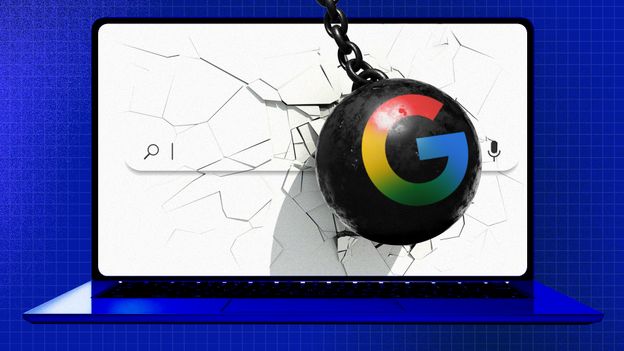- cross-posted to:
- technology@lemmy.world
- cross-posted to:
- technology@lemmy.world
Google says a new AI tool on its search engine will rejuvenate the internet. Others predict an apocalypse for websites. One thing is clear: the current chapter of online history is careening towards its end. Welcome to the “machine web”.
The web is built on a simple bargain – websites let search engines like Google slurp up their content, free of charge, and Google Search sends people to websites in exchange, where they buy things and look at adverts. That’s how most sites make money.
An estimated 68% of internet activity starts on search engines and about 90% of searches happen on Google. If the internet is a garden, Google is the Sun that lets the flowers grow.
This arrangement held strong for decades, but a seemingly minor change has some convinced that the system is crumbling. You’ll soon see a new AI tool on Google Search. You may find it very useful. But if critics’ predictions come true, it will also have seismic consequences for the internet. They paint a picture where quality information could grow scarcer online and large numbers of people might lose their jobs. Optimists say instead this could improve the web’s business model and expand opportunities to find great content. But, for better or worse, your digital experiences may never be the same again.
On 20 May 2025, Google’s chief executive Sundar Pichai walked on stage at the company’s annual developer conference. It’s been a year since the launch of AI Overviews, the AI-generated responses you’ve probably seen at the top of Google Search results. Now, Pichai said, Google is going further. “For those who want an end-to-end AI Search experience, we are introducing an all-new AI Mode,” he said. “It’s a total reimagining of Search.”
You might be sceptical after years of AI hype, but this, for once, is the real deal.



Open Street Maps, or any fork from it. You can also purchase a modern road atlas for basically nothing. Alternatively, people do make navigation units for cars, that you can purchase. Life is completely possible, with relatively little inconvenience if you want to separate yourself from Big Tech. I write down the directions and just follow street signs. You don’t want to rely on things like GPS, because it destroys your ability to commit identifying markers to memory. You can glance at the screen and glance at the road in front of you. But that stops you from being able to commit the experience from memory. Smart Tech and the offloading of our mental faculties to technology has made all of us
Way too overconfident in our ability to comprehend, review and parse information.
Decimated our attention spans and will most likely see a whole new type of cognitive decline.
Sorry for the tangent. But yeah, there’s options there. With or without the tech.